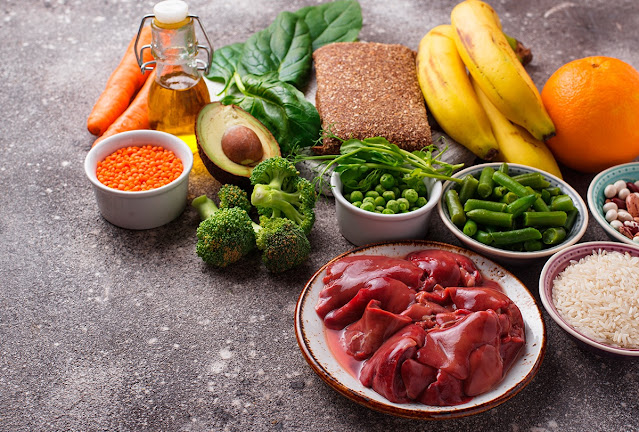WAYS TO INCREASE HEMOGLOBIN 2023
There are different types of hemoglobin, depending on the specific subunits that make up the protein. The most common type in adults is hemoglobin A, which is made up of two alpha subunits and two beta subunits. Other types include hemoglobin F, which is produced in fetuses and newborns, and hemoglobin S, which is associated with sickle cell disease.
Testing for hemoglobin levels is a common part of routine blood tests, and low levels can indicate anemia or other medical conditions. Treatment for low hemoglobin levels may involve dietary changes, iron supplements, or other medical interventions.
When oxygen is inhaled, it enters the lungs and diffuses across the thin walls of the air sacs (alveoli) into the surrounding capillaries, where it binds to the heme groups of hemoglobin in red blood cells. The oxygen-bound hemoglobin then travels through the arteries to the body's tissues, where the oxygen is released for use in cellular respiration.
At the same time, carbon dioxide produced by the body's cells diffuses into the capillaries and binds to hemoglobin, which then carries it back to the lungs to be exhaled.
Hemoglobin is critical for maintaining normal oxygen levels in the body, and abnormalities in its production or function can lead to various health problems, including anemia, sickle cell disease, and other blood disorders.
Eat iron-rich foods: Foods rich in iron, such as red meat, poultry, seafood, beans, lentils, tofu, spinach, and fortified cereals, can help increase hemoglobin levels.
Take iron supplements: If your hemoglobin levels are very low or you have iron-deficiency anemia, your doctor may recommend iron supplements. Iron supplements are available over-the-counter, but it's important to talk to your doctor before taking them, as they can have side effects and interact with other medications.
Increase intake of vitamin C: Vitamin C helps the body absorb iron, so eating foods high in vitamin C, such as citrus fruits, berries, kiwi, tomatoes, and bell peppers, can help increase hemoglobin levels.
Avoid drinking tea and coffee with meals: Drinking tea or coffee with meals can interfere with the absorption of iron. It's best to avoid drinking these beverages with meals, or to wait at least an hour after eating before consuming them.
Exercise regularly: Regular exercise can help increase hemoglobin levels by stimulating the production of red blood cells.
Manage underlying health conditions: Certain health conditions, such as kidney disease, inflammatory bowel disease, and some types of cancer, can cause anemia and lower hemoglobin levels. Managing these conditions through medication, lifestyle changes, or other treatments can help improve hemoglobin levels.
It's important to note that increasing hemoglobin levels can take time, and it's important to work with a healthcare professional to determine the underlying cause of low hemoglobin and develop an appropriate treatment plan.
Iron supplements: Iron supplements are a common treatment for low hemoglobin levels caused by iron deficiency anemia. They come in different forms, such as ferrous sulfate, ferrous gluconate, and ferrous fumarate, and can be purchased over-the-counter or prescribed by a doctor.
Vitamin C supplements: Vitamin C supplements can help increase iron absorption in the body, which can help raise hemoglobin levels. They are available over-the-counter and can be taken in the form of tablets or capsules.
Folate supplements: Folate, also known as vitamin B9, is important for the production of red blood cells. Taking a folate supplement can help increase hemoglobin levels, particularly in people with folate deficiency anemia. Folate supplements are available over-the-counter and can be taken in the form of tablets or capsules.
Vitamin B12 supplements: Vitamin B12 is another important nutrient for red blood cell production. Taking a vitamin B12 supplement can help increase hemoglobin levels in people with vitamin B12 deficiency anemia. Vitamin B12 supplements are available over-the-counter and can be taken in the form of tablets, capsules, or injections.
Spirulina supplements: Spirulina is a type of blue-green algae that is rich in iron, as well as other nutrients like vitamins B12 and folate. Taking a spirulina supplement can help increase hemoglobin levels, particularly in people who are vegetarian or vegan and may not get enough iron from their diet.
It's important to talk to a healthcare professional before taking any food supplements, as they can interact with other medications and cause side effects. A healthcare professional can help determine the appropriate dosage and duration of supplement use based on individual needs and health status















No comments: